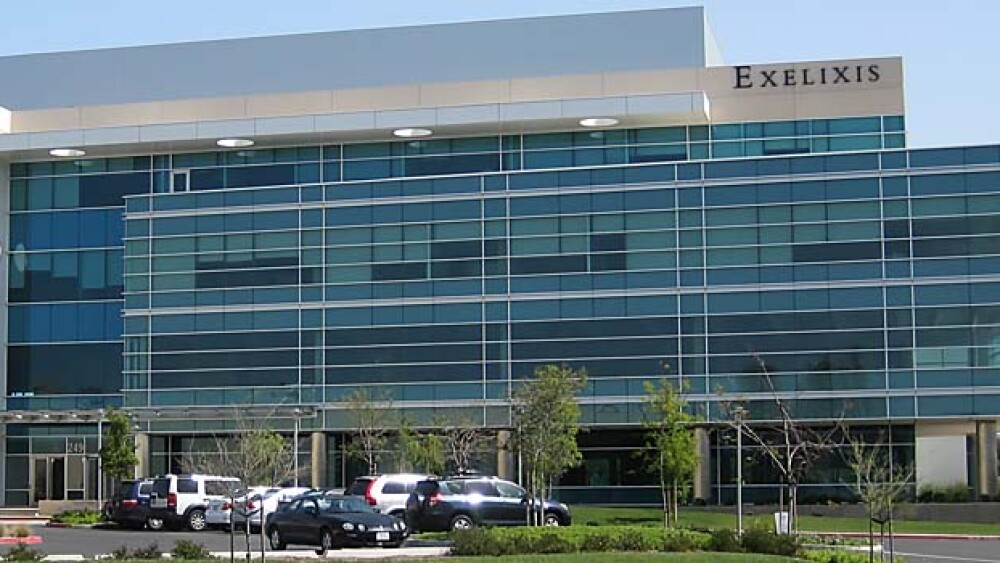Cabometyx hit key endpoints of overall survival in its Phase III liver cancer trial and investors are overjoyed.
Exelixis’ Cabometyx (cabozantinib) hit key endpoints of overall survival in its Phase III liver cancer trial and investors are overjoyed.
This morning, share prices for Exelixis have shot up about 28 percent, hitting $31.72 as of 10:05 a.m. after the Independent Monitoring Committee recommended the trial should stop for achieving efficacy following a review of second interim data.
Cabometyx targets MET, AXL and VEGFR-1, -2 and -3. Phase III data showed Cabometyx provided a statistically significant and clinically meaningful improvement in median overall survival compared to placebo in patients with advanced hepatocellular carcinoma (HCC). The Exelixis drug is being tested in HCC patients who have previously been treated with Bayer and Onyx Pharmaceuticals’ chemo drug Nexavar (sorafenib), a tyrosine kinase inhibitor. Based on the Phase III efficacy results, Exelixis said it intends to file a New Drug Application with the U.S. Food and Drug Administration in the first quarter of 2018.
Hepatocellular carcinoma is the most common form of liver cancer, which is the third-leading cause of death worldwide. About 700,000 people die from liver cancer each year, according to Exelixis. Of the 41,000 cases of liver cancer diagnosed in the first part of 2017, HCC made up about two-thirds of them, Exelixis said. Patients with an advanced form of the disease typically die within six months.
“We are excited that these positive results from the Phase III CELESTIAL trial bring us one step closer to the potential of offering previously treated patients with this aggressive form of advanced liver cancer a much-needed new treatment option,” Exelixis Chief Medical Officer Gisela Schwab said in a statement. “This is an important milestone for the cabozantinib development program; we are committed to studying cabozantinib in a range of tumor types as part of our mission to deliver medicines that improve treatment outcomes and give patients hope for the future.”
In September, rival cancer drug company Onxeo saw its Phase III HCC drug Livatag (doxorubicine Transdrug) fail to improve survivability over standard of care. Livatag did not differentiate itself statistically from best standard of care in patients with unresectable HCC who are intolerant to Nexavar or have progressed beyond a therapy of that drug, the company said in September.
Cabometyx was granted orphan drug designation in March for HCC. It was approved by the FDA last year to treat Renal Cell Cancer, a type of kidney cancer.
In the 760 patient Celestial trial, patients were randomized 2:1 to receive 60 mg of Cabometyx or placebo once daily. The company assumed an overall survival reading of 8.2 months for the placebo patients. The study had 90 percent power to detect a 32 percent increase in overall survival. Final results have not been released. The company said a more detailed analysis of the trial data will be presented at a future medical conference.
Exelixis said it will discuss the trial results with regulatory authorities and determine next steps for the trial, including offering patients currently receiving placebo the opportunity to cross over to cabozantinib.





